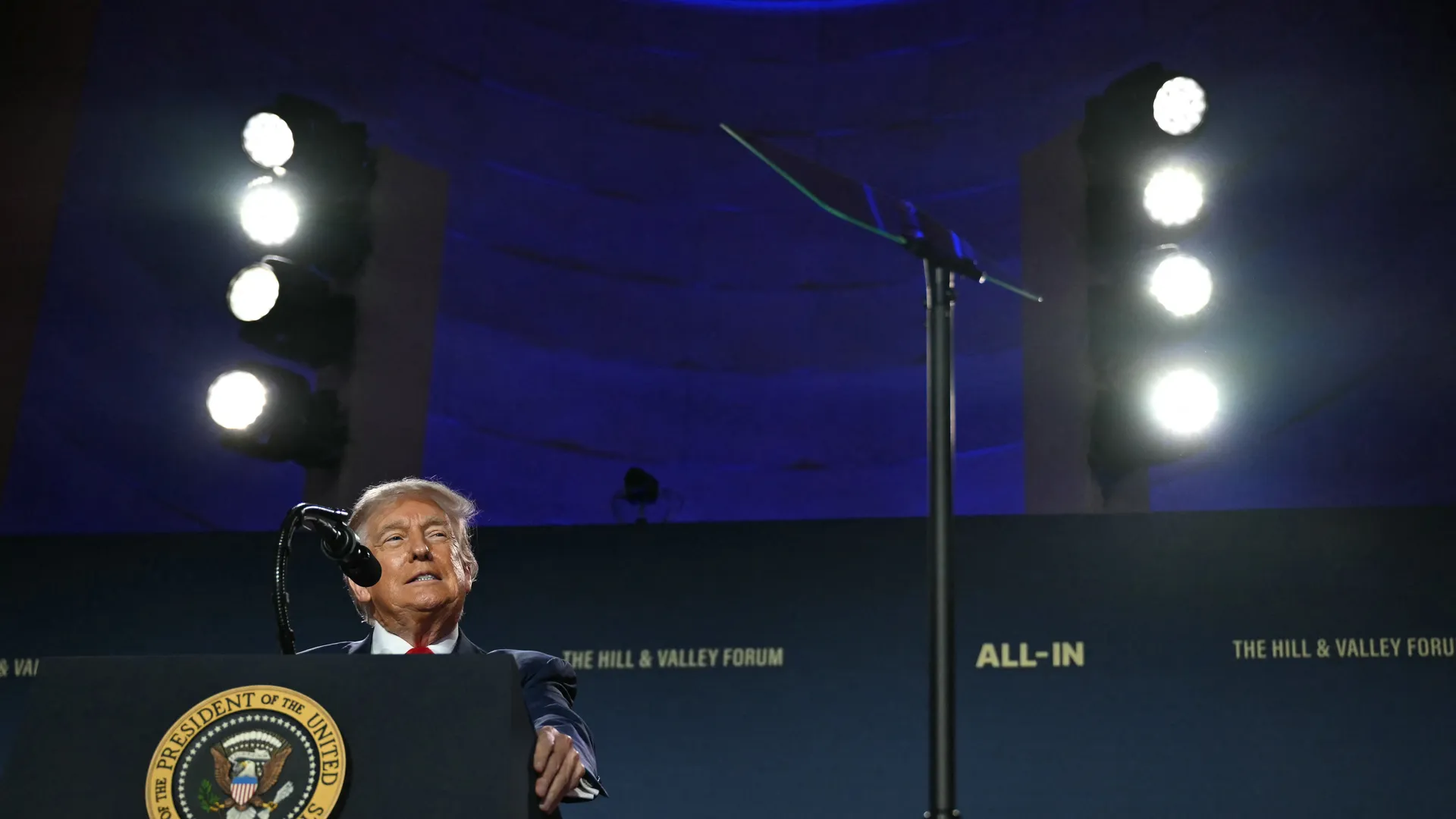Washington, D.C. – Former President Donald Trump has declared that the United States will do “whatever it takes” to lead the world in artificial intelligence (AI), unveiling a new national AI strategy focused on defeating China in the global tech race.
Speaking at the “Winning the AI Race” Summit in Washington on Wednesday, Trump introduced the AI Action Plan, a 20-page document that outlines a pro-growth, hands-off approach to developing AI technologies. The event was co-hosted by the All-In Podcast and the Hill & Valley Forum, with high-profile guests including NVIDIA CEO Jensen Huang and AMD CEO Lisa Su.
“America is going to win the AI race,” Trump said. “From this day forward, it’ll be the policy of the United States to do whatever it takes to lead the world in artificial intelligence.”
The AI Action Plan prioritizes U.S. dominance over China, aiming to allow American companies to grow and scale without strict regulations. Trump called for a single national AI policy, warning against a patchwork of state-level rules that could slow innovation.
“We can’t have 50 different standards across 50 states,” he said. “We need one federal approach that supports innovation.”
While the plan is aggressive in its push for global leadership, it does not include clear policies on key issues like AI copyright laws. Trump briefly addressed it during his speech, saying AI developers should be allowed to use training data without needing to compensate every author, a statement likely to stir debate among artists and content creators.
Vice President JD Vance, Commerce Secretary Howard Lutnick, and Treasury Secretary Scott Bessent also participated in the summit, appearing in panels to back the plan. Meanwhile, AI and crypto czar David Sacks noted that the administration is still considering how to handle state-level restrictions, hinting that federal preemption may be addressed in the coming year.
OSTP Director Michael Kratsios emphasized the role of Congress in resolving conflicts between state and federal laws, suggesting the White House will focus on what it can achieve through executive action.
Senator Ted Cruz, who has tried and failed to block state-level AI bans in the past, was spotted in the audience during Trump’s speech.
Trump is expected to sign three executive orders in the coming days to begin implementing parts of the AI Action Plan. The executive orders will likely focus on federal coordination, funding incentives, and limiting state interference.
This strategy marks one of the strongest statements yet from Trump on emerging technologies, as he positions himself and the U.S. as aggressive leaders in the global AI race.



